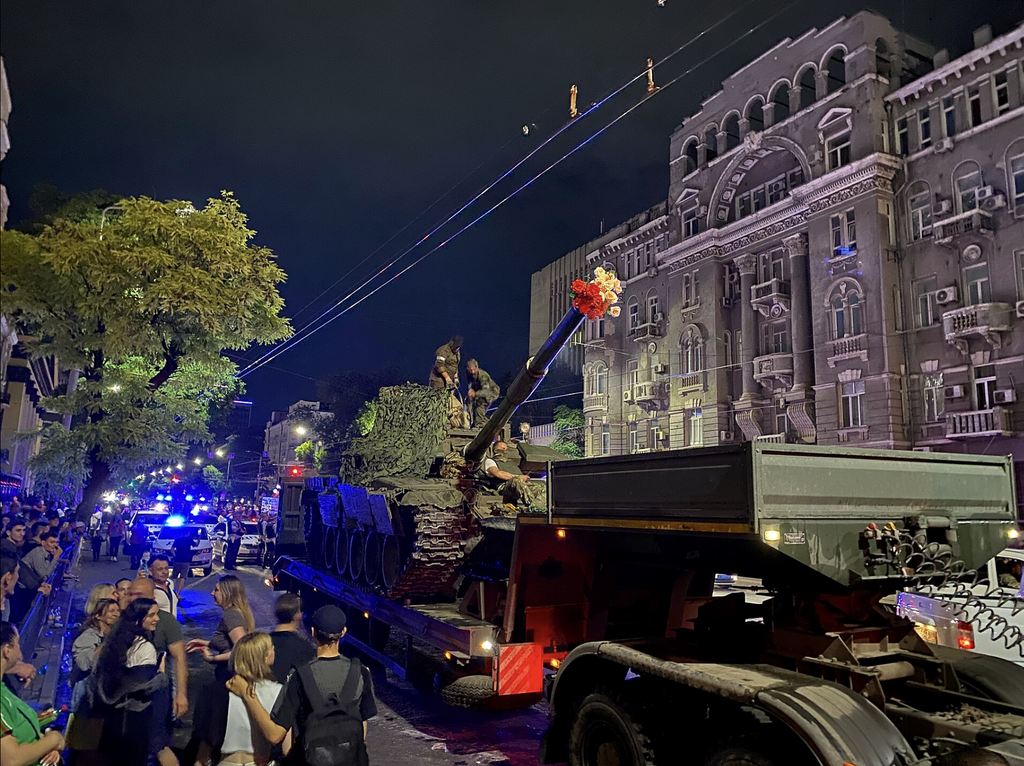After launching a surprise rebellion against the Russian military forces and then turning on Moscow itself, the mutiny that looked for a moment as if it might pitch Putin into peril was swiftly brought to an end on Saturday evening.
The forces of the paramilitary Wagner group began leaving their positions in Russia on Saturday on the orders of their leader Yevgeny Prigozhin. The tempestuous warlord, who had promised the day before “to liberate the Russian people” by sending his troops towards Moscow, finally backed down, to avoid spilling “Russian blood,” he said.
His troops were less than 400 km from the capital on Saturday after having seized the Russian army headquarters in Rostov (south-west), the nerve centre of operations in Ukraine, in the morning. After being cheered by dozens of residents to cries of “Wagner, Wagner!”, these fighters began to leave the scene in the evening, an AFP journalist observed.
Having commanded his troops to stand down, the leader of Wagner is expected to escape prosecution, despite having been directly threatened by Vladimir Putin. The criminal investigation into Yevgeny Prigozhin will thus be dropped and he will be able to leave for Belarus, the Kremlin announced.
This is how the convoy of "Wagner" military equipment left Rostov-on-Don last night pic.twitter.com/6oNAJgqoPV
— Sprinter (@Sprinter99880) June 25, 2023
None of the fighters from the Wagner group, which plays a key role alongside the Russian army in Ukraine, will also be prosecuted for their coup: “No one will persecute (the fighters), taking into account their merits on the Ukrainian front”, said Kremlin spokesman Dmitry Peskov.
Belarussian President Alexander Lukashenko, a close ally of Mr Putin, appears to have played a key role as mediator. According to his services, it was he who suggested to the Wagner leader that he halt his advance into Russia. “We are grateful to the Belarusian president for these efforts,” hailed the Kremlin spokesman.
Existential crisis or flash in the pan?
Faced with his greatest challenge since coming to power at the end of 1999, President Putin had tried to keep a tight rein on this unprecedented rebellion, denouncing “treason” and raising the spectre of “civil war”.
At the same time, the Kremlin warned Western countries against any attempt to “take advantage of the internal situation in Russia to achieve their Russophobic goals”. Wagner’s abortive rebellion would “in no way” affect the Russian offensive in Ukraine, its spokesman claimed in the evening.
Yet according to Ukrainian President Volodymyr Zelensky, Wagner’s power grab showed that “the Russian leadership has no control over anything”. Meanwhile the Ukrainian army on Saturday claimed “advances in all directions” on the eastern front.
Some exceptional security measures taken in Russia in the face of Wagner’s advance have begun to be lifted although travel restrictions are not yet entirely loosened and Monday has been declared a non-working day.

